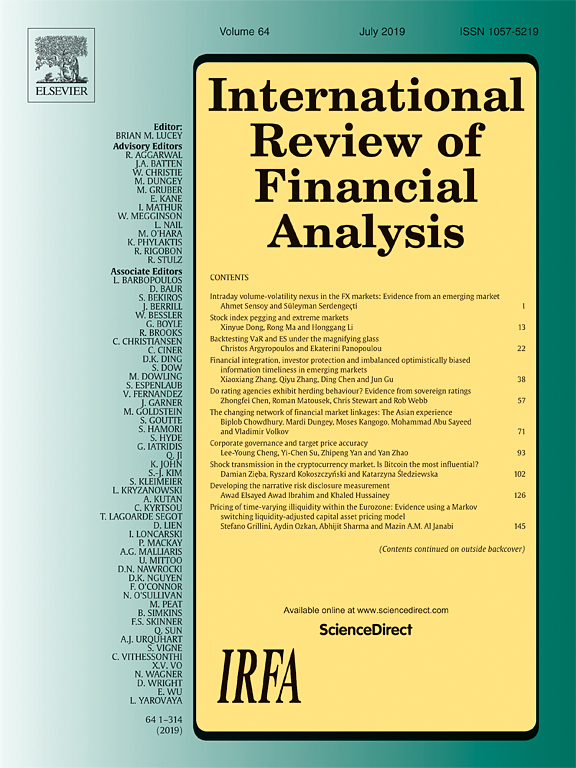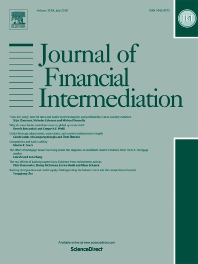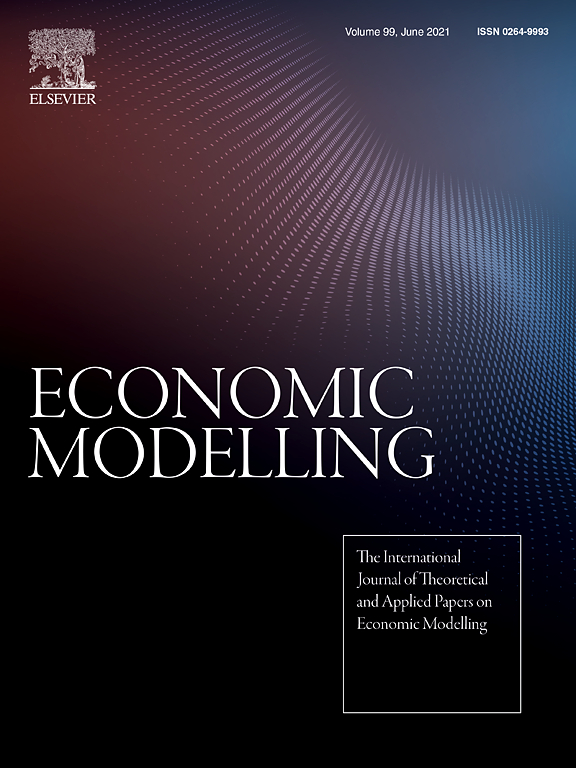Financial System Adaptability and Resilience
Financial systems differ across countries and tend to evolve slowly over time. Their structure is typically stable, but their resilience is often tested. A well-functioning financial system is vital for economic development, as it ensures that capital flows to the most productive and valuable investment opportunities. However, systemic vulnerabilities can have far-reaching consequences. For example, the 2007–08 global financial crisis emerged from within the financial sector itself when complex financial products fuelled a credit bubble in the U.S. housing market, threatening global economic stability when the bubble burst. That event led to extensive policy and regulatory reforms to strengthen financial system resilience.
Financial systems continue to face significant challenges. External shocks like the COVID-19 pandemic, the climate crisis, the green economic transition, and the energy crisis driven by geopolitical conflict all underscore the importance of financial systems that can absorb shocks and adapt to changing economic conditions. Motivated by these pressing issues, we investigate how financial systems respond to crises, which institutions and policies improve resilience, and the role of finance systems' setup in broader economic transformations. We use diverse data sources, including bank and firm-level data, regulatory reports, and house price and election data, to inform evidence-based policy.
Research Cluster
Financial Resilience and RegulationYour contact

- Department Financial Markets
EXTERNAL FUNDING
08.2022 ‐ 07.2025
OVERHANG: Debt overhang and green investments - the role of banks in climate-friendly management of emission-intensive fixed assets
The collaborative project “Debt Overhang and Green Investments” (OVERHANG) aims to investigate the role of banks in the climate-friendly management of emission-intensive fixed assets. This will identify policy-relevant insights on financial regulation, government-controlled lending and financial stability, as well as raise awareness among indebted stakeholders.
01.2015 ‐ 12.2019
Interactions between Bank-specific Risk and Macroeconomic Performance
07.2016 ‐ 12.2018
Relationship Lenders and Unorthodox Monetary Policy: Investment, Employment, and Resource Reallocation Effects
Leibniz Association
We combine a number of unique and proprietary data sources to measure the impact of relationship lenders and unconventional monetary policy during and after the European sovereign debt crisis on the real economy. Establishing systematic links between different research data centers (Forschungsdatenzentren, FDZ) and central banks with detailed micro-level information on both financial and real activity is the stand-alone proposition of our proposal. The main objective is to permit the identification of causal effects, or their absence, regarding which policies were conducive to mitigate financial shocks and stimulate real economic activities, such as employment, investment, or the closure of plants.
Refereed Publications

The Real Impact of Ratings-based Capital Rules on the Finance-Growth Nexus
in: International Review of Financial Analysis, January 2021
Abstract
We investigate whether ratings-based capital regulation has affected the finance-growth nexus via a foreign credit channel. Using quarterly data on short to medium term real GDP growth and cross-border bank lending flows from G-10 countries to 67 recipient countries, we find that since the implementation of Basel 2 capital rules, risk weight reductions mapped to sovereign credit rating upgrades have stimulated short-term economic growth in investment grade recipients but hampered growth in non-investment grade recipients. The impact of these rating upgrades is strongest in the first year and then reverses from the third year and onwards. On the other hand, there is a consistent and lasting negative impact of risk weight increases due to rating downgrades across all recipient countries. The adverse effects of ratings-based capital regulation on foreign bank credit supply and economic growth are compounded in countries with more corruption and less competitive banking sectors and are attenuated with greater political stability.

Transactional and Relational Approaches to Political Connections and the Cost of Debt
in: Journal of Corporate Finance, December 2020
Abstract
This paper examines the economic effects of a firm's approach to developing and maintaining political connections. Specifically, we investigate whether lenders favor transactional connection as opposed to relational connection. By tracing firms in a politically volatile emerging democracy in Indonesia, we find that firms following a transactional political connection strategy experience a relatively lower cost of debt than those with a relational strategy. The effect is more pronounced for firms facing high financial distress. The finding is robust to cost of bank loans and a variety of regression methods. Overall, the evidence suggests that in times of frequently changing political regimes, firms benefit from a transactional relationship with politicians as it enables to update connection with the government in power. Relational connection is valuable for a firm only when the political regime connected with it gains power.

Borrowers Under Water! Rare Disasters, Regional Banks, and Recovery Lending
in: Journal of Financial Intermediation, July 2020
Abstract
We show that local banks provide corporate recovery lending to firms affected by adverse regional macro shocks. Banks that reside in counties unaffected by the natural disaster that we specify as macro shock increase lending to firms inside affected counties by 3%. Firms domiciled in flooded counties, in turn, increase corporate borrowing by 16% if they are connected to banks in unaffected counties. We find no indication that recovery lending entails excessive risk-taking or rent-seeking. However, within the group of shock-exposed banks, those without access to geographically more diversified interbank markets exhibit more credit risk and less equity capital.

Cross-country Evidence on the Relationship between Regulations and the Development of the Life Insurance Sector
in: Economic Modelling, July 2020
Abstract
Using a global sample, this study sketches the impact of insurance regulations on the life insurance sector, revealing a significant negative association between supervisory control on policy conditions of life annuities as well as pension products and the development of the industry. A similar inverse relation is observed between the index of capital requirements and insurance development. These results hold when we control for demographic factors, economic factors, religious inclination, culture, as well as for other relevant regulations. We also find some evidence that while the overall supervisory power does not matter, the ability to intervene at an early stage could have a positive effect on insurance development. Additionally, the impact of some regulations appears to differ between advanced and developing countries.

Credit Allocation when Borrowers are Economically Linked: An Empirical Analysis of Bank Loans to Corporate Customers
in: Journal of Corporate Finance, June 2020
Abstract
Using detailed loan level data, we examine bank lending to corporate customers relying on principal suppliers. Customers experience larger loan spreads, higher intensity of covenants and greater likelihood of requiring collateral when they depend more on the principal supplier for inputs. The positive association between the customer’s loan spread and its dependence on the principal supplier is less pronounced when the bank has a prior loan outstanding with the principal supplier, and when the bank has higher market share in the industry. Longer relationships between the customer and its principal supplier, and between the bank and the principal supplier, mitigate lending constraints. The evidence is consistent with corporate suppliers serving as an informational bridge between the lender and the customer.
Working Papers

Corporate Governance Structures and Financial Constraints in Multinational Enterprises – An Analysis in Selected European Transition Economies on the Basis of the IWH FDI Micro Database 2013 –
in: IWH Discussion Papers, No. 3, 2015
Abstract
In our analysis, we consider the distribution of decision power over financing and investment between MNEs’ headquarters and foreign subsidiaries and its influence on the foreign affiliates’ financial restrictions. Our research results show that headquarters of multinational enterprises have not (yet) moved much decision power to their foreign subsidiaries at all. We use data from the IWH FDI Micro Database which contains information on corporate governance structures and financial restrictions of 609 enterprises with a foreign investor in Hungary, Poland, the Czech Republic, Slovakia, Romania and East Germany. We match data from Bureau van Dijk’s AMADEUS database on financial characteristics. We find that a high concentration of decision power within the MNE’s headquarter implicates high financial restrictions within the subsidiary. Square term results show, however, that the effect of financial constraints within the subsidiary decreases and finally turns insignificant when decision power moves from headquarter to subsidiary. Thus, economic policy should encourage foreign investors in the case of foreign acquisition of local enterprises to leave decision power within the enterprise and in the case of Greenfield investment to provide the newly established subsidiaries with as much power over corporate governance structures as possible.



















